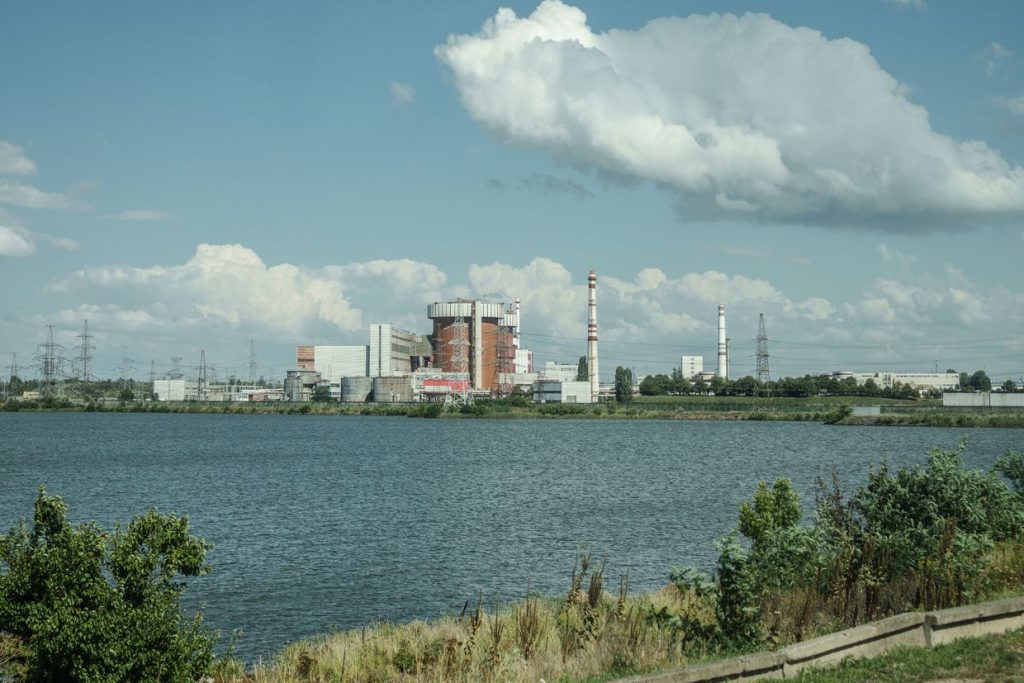Ukraine is currently in discussions with the International Atomic Energy Agency (IAEA) to place foreign observers near its nuclear power plants due to concerns over potential attacks by Russia. President Volodymyr Zelensky warned that Russia is planning to strike three power plants as part of its strategy to target Ukraine’s energy system. The country’s three operating nuclear facilities are the Rivne and Khmelnytskyi plants in the west, and the Pivdennoukrainsk plant in the south. The Chornobyl plant is decommissioned, and the Zaporizhzhia plant is under Russian occupation. Yuliia Kyian, a representative from Ukraine’s Energy Ministry, emphasized the need to protect critical assets like substations that are connected to the plants, as they could be vulnerable to attacks.
Placing foreign observers near the power plants, although not inside them, could help ensure nuclear and energy stability according to Kyian. The goal is to demonstrate to the world the importance of proper operation of these facilities for security and safety. Despite having some physical protections in place, Ukraine’s energy facilities are not fully shielded against ballistic missile attacks, as the country lacks air defense systems. Damage to substations could disrupt the flow of electricity from nuclear plants to the grid and affect backup supplies that ensure reactor safety. With nuclear power being the main source of energy in Ukraine, any disruption in the energy sector could lead to blackouts, which is a major concern as winter approaches.
The International Energy Agency (IEA) has highlighted the significance of protecting Ukraine’s energy infrastructure to prevent potential damage. The country is currently engaging in discussions with the IAEA and the European Union to address these security concerns. Since September 2022, there has been an IAEA mission at the Zaporizhzhia nuclear power plant, although Russian authorities have denied full access to inspectors. Russia’s occupation of the Zaporizhzhia plant has raised nuclear safety risks, as Ukraine accuses Moscow of using the plant for military purposes. The occupation has also significantly impacted Ukraine’s electricity supply, with a quarter of the country’s power generation being affected.
Russia has escalated attacks on Ukraine’s energy infrastructure, leading to further disruptions in the country’s electricity supply. President Zelensky has raised concerns about Russia surveilling Ukrainian nuclear facilities with Chinese satellites, indicating a potential threat of future strikes. Prior to the full-scale invasion, nuclear power played a substantial role in generating electricity for Ukraine. However, the occupation of the Zaporizhzhia plant and subsequent attacks on thermal and hydro plants have resulted in significant losses in generation capacity. It is essential for Ukraine to address these security risks to ensure the stability of its energy sector and prevent further disruptions.
The ongoing discussions with the IAEA and other international partners underscore the urgency of safeguarding Ukraine’s energy infrastructure. With the country heavily reliant on nuclear power, any attacks on its power plants or connected infrastructure could have severe consequences. As Ukraine prepares for winter, the risk of blackouts and disruptions in electricity supply looms large, highlighting the need for enhanced security measures. By seeking assistance from global organizations like the IAEA and engaging in diplomatic efforts with the EU, Ukraine is striving to protect its critical energy assets and ensure the safety and security of its nuclear facilities. Addressing these challenges is vital not only for Ukraine but also for global nuclear safety and security.


